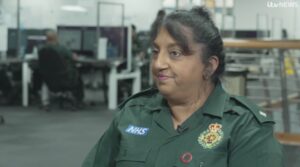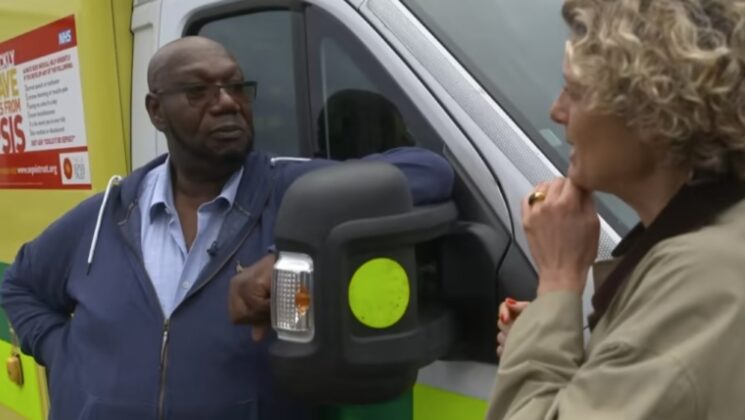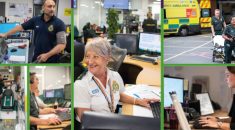Two UNISON members have appeared on a powerful ITV report into ambulance waiting times.
Senior paramedic and UNISON branch chair Glenn Carrington (pictured above), who has worked for the East of England Ambulance Service (EEAS) for almost 30 years, described how dire the situation has become.
“We’re spending so much time sat outside the hospital. The record so far is 10 and a half hours.
“Literally 10 and a half hours with our patient in the back of our vehicle, unable to move into the hospital.”
When ITV health editor Emily Morgan asked: “Did that patient deteriorate?” Mr Carrington responded: “They always deteriorate.
“We’ve had a few people die in the back of our ambulances. And the guilt you feel, the anger, the frustration. I can’t put it into words, it’s heartbreaking.”
Recent statistics show that 1 in 10 ambulances wait more than an hour to admit patients to hospital. This is a steep increase since 2019, when the figure was 1 in 50.
However, there are also significant delays in getting ambulances out to patients in the first place.

Reena Farrington, in an interior, wearing her ambulance service uniform
UNISON staff chair and call supervisor Reena Farrington from the West Midlands Ambulance Service was also interviewed. She has worked for the service for 23 years.
Ms Farrington described how she often leaves work for the day, only to find the same patients waiting the next morning when she comes back to work: “That’s if they make it through the night.”
She broke down in tears after describing how people have died while waiting for an ambulance.
UNISON national officer Alan Lofthouse said: “Because there’s no real response from government to solve the problem, it feels like the individual workers are taking that on.
“We hear of people who go to work who have to sit in their car in tears, or people in control centres who take calls and have to go and cry in the toilet because they feel so much pressure themselves.”





